Shock of recognition as Yes vote for Indigenous voice to parliament softens
Concerned Yes campaigners are changing tack, avoiding mention of the V-word. The voice is on the nose while recognition gets sympathy and approval from the public.
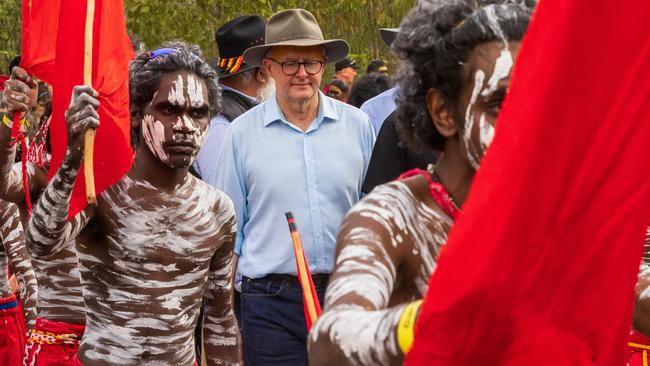
This is not a subjective assessment but an objective judgment based on what the Yes campaign supporters are saying, what they are not saying, what they are doing and what they are not doing.
There are also problems with polling and who the Yes campaign wants to be seen campaigning for the Indigenous voice and leading the public debate.
This is a crucial point not only for the Yes campaign but also for Anthony Albanese and the Labor government, which stands to lose so much if the referendum is lost.
Peter Dutton also is affected by who will be seen to be running the referendum debate on both sides. The Opposition Leader is already the de facto leader of the No campaign, which trails behind the Yes campaign in every capacity except a growing number of opinion polls.
Yet this week, as the Senate confirmed there would be no compromise on the referendum question, pro-voice leaders began to suggest the Yes campaign was running off the tracks, falling victim to the negativity of the No campaign, that there were mixed messages and the Yes side needed to get Canberra and the politicians out of the debate.
Indigenous Australians Minister Linda Burney now wants to concentrate on the practical benefits of the voice. Cape York Indigenous leader and Yes23 campaign member Noel Pearson says there is “a lack of clarity that is really working against us”.
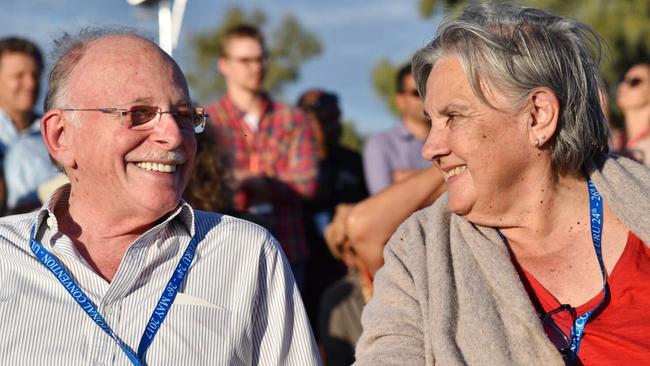
Referendum Council co-chairman Mark Leibler says there is too much emphasis on the voice and not enough on recognition. And Yes23 campaign director Dean Parkin says there has to be a shift “away from Canberra and into the hands of everyday Australians”.
As well, a GetUp-backed group that supports the Indigenous voice to parliament is urging advocates, organisations and journalists to alienate opponents and encourage them to make racist comments so more Australians join the Yes camp.
As young people and Labor supporters start to drift from soft Yes to hard No, even the Prime Minister has changed his message, dropping his description of the voice as being modest to it being the opposite.
Indeed, prominent Yes campaigner Marcia Langton declared this week that the establishment of a voice would help fix the Constitution by ameliorating racism in the founding document and reportedly said the campaign was intent on tearing up the fabric of the Constitution.
While Pearson has dismissed as “bed-wetting” the call by fellow Indigenous leader Mick Gooda to compromise by dropping the contentious reference to executive government – giving the voice the constitutional power to weigh in on all government decisions from the Reserve Bank to the Great Barrier Reef – it would seem the consistent polls showing not only a decline in support for the voice but, in some cases, a majority on the No side have led to clear concerns about the need for a change in direction.
It is extraordinary that the Yes campaign – which has a war chest of tens of millions of dollars, years of preparation, dozens of national Indigenous leaders, the backing of corporate giants, sporting codes and churches, and, most important, the “all in” backing of Albanese and the federal Labor government – should be conceding it’s in trouble even before the referendum is launched.
It is even more extraordinary that having identified it is losing ground, the apparent answer to get the Yes campaign back on track is to magnify what are clearly the issues that are at the root cause of the loss of public support.
The campaign for a referendum on an Indigenous voice to parliament and executive government began more than a year ago when Albanese nominated a voice to parliament and the implementation of the Uluru Statement from the Heart as his first priority on election night.
The public opinion polls put the voice and recognition of Indigenous people into the Constitution in an overwhelming position with goodwill and a determination to help solve generational problems that have eluded Australian governments for more than 120 years.
Since then Albanese has promoted the voice, accepting the recommendations of the referendum working group that ensured the double-barrelled question would include Indigenous recognition in the Constitution and an advisory voice to parliament and executive government that would be enshrined in the Constitution with an entirely new chapter.
Wary of a republican-style referendum defeat because of a detailed question about process, Albanese decided to deny details, to eschew bipartisan support and to leave the format of the voice to be legislated after the referendum.
As the most prominent figure on the Yes side, Albanese, as Prime Minister and a politician from Canberra, was an energetic and forceful advocate for the voice to parliament and recognition within the Constitution.
But what has become clear in recent weeks is that the voice is on the nose while recognition gets sympathy and approval from the public. So, the first thing that is happening is that the Yes campaign is avoiding the use of the word voice wherever possible and promoting recognition.
People have been demanding detail about how the voice would work, how it would affect day-to-day government. The defiant refusal to provide detail of how it would work has figured prominently among voters’ concerns, with the latest Newspoll showing a big drift away from supporting the referendum and into the “don’t know” category. It plays into the No campaign’s motto: “If you don’t know vote No.”
Rather than attempt to provide more information about how the voice would work and allay fears, the Yes campaign has decided simply to stop referring to the voice.
A breezy statement from the Yes23 campaign this week encouraged grassroots participation at picnics and sports but did not mention the voice once.
Pearson said this week the Yes campaign must do more to make it clear that recognising Indigenous people in the Constitution was the aim and the voice was the means to do it.
Leibler told The Australian: “Noel is correctly making the point that the emphasis needs to be on recognition. The reason why the wrong emphasis is being put on it is because I think the Yes case has been, to some extent, cornered by some of the disinformation … it is a pitfall that needs to be avoided.
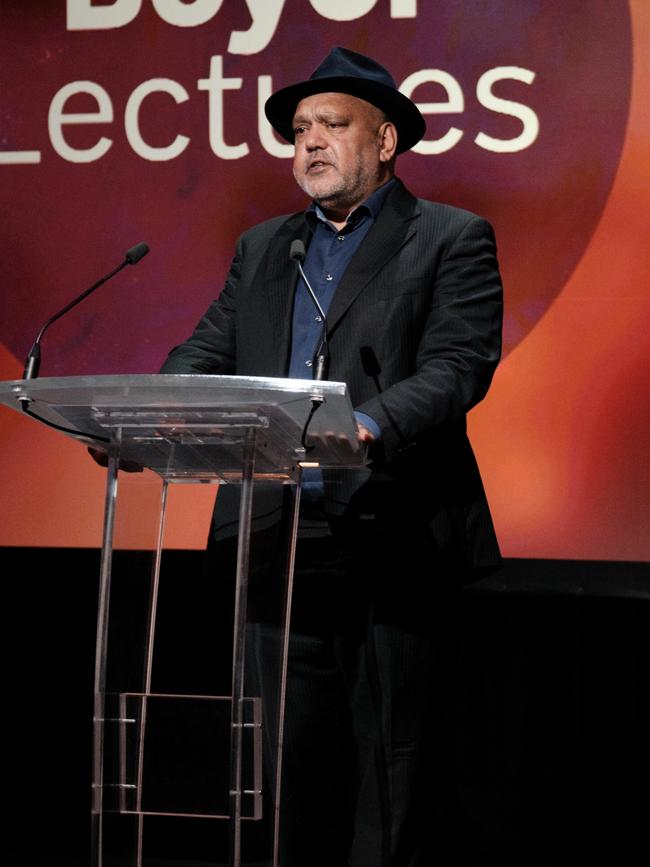
“If there is disinformation then it needs to be rebutted, but I think what the campaign needs to do is less of the rebuttal and more of the positive message.”
When the voice entered the debate, the first Newspoll showed the biggest reason for people to say they would vote No was that they did not think the voice would address the practical problems facing the worst-off Indigenous communities.
In the past week Burney shifted to mentioning the practical benefits of having a voice to parliament and even suggested it could help change how work for the dole was applied or build more housing in remote communities.
But the problem here for the Yes campaign is that to argue about how much can be done practically is to reinforce the breadth of the voice and to promote it as a silver bullet solution to all the problems of Indigenous Australians.
Previous comments from Pearson and fellow referendum working group member Megan Davis have reinforced these powers of the voice over day-to-day government with declarations everything had to be subject to the voice representatives and the voice could not be “shut up”. Again, such sentiments play into the No campaign argument that there will be another layer of bureaucracy with reach into every aspect of decision-making at every level of federal government.
Finally, the Yes campaign’s wish to get politicians out of the debate is to try to make the debate less partisan, less polarised, and to have it fit the self-description of having come from the bottom up.
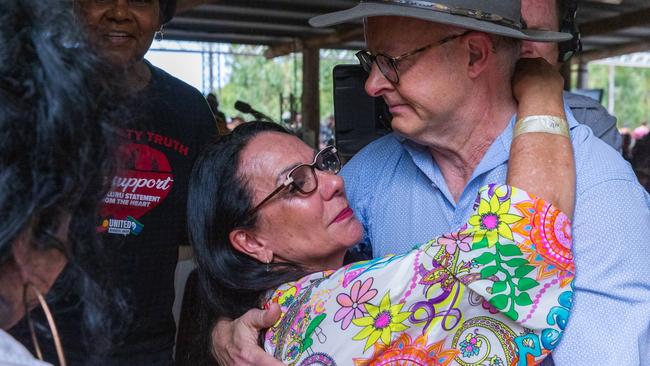
The difficulty with this strategy is that many of the recent problems for the Yes campaign were not created by political leaders supporting the voice – such as Albanese – but from non-political Indigenous leaders who overreached and turned people off with suggestions of racism in voting No.
Certainly Albanese’s description of No voters as being “Chicken Littles” didn’t help a positive image, but much worse and more divisive language has been used outside Canberra. Again, though, the Yes campaign is reacting to the low-cost but effective No argument that the referendum is for a “Canberra voice” imposed by the elite and politicians, not as is claimed from the ground up.
There’s still plenty of time and money for the Yes campaign to build momentum towards October, but so many different and conflicting messages – with just a hint of damp sheets – are not a good sign when the polls are running against it.


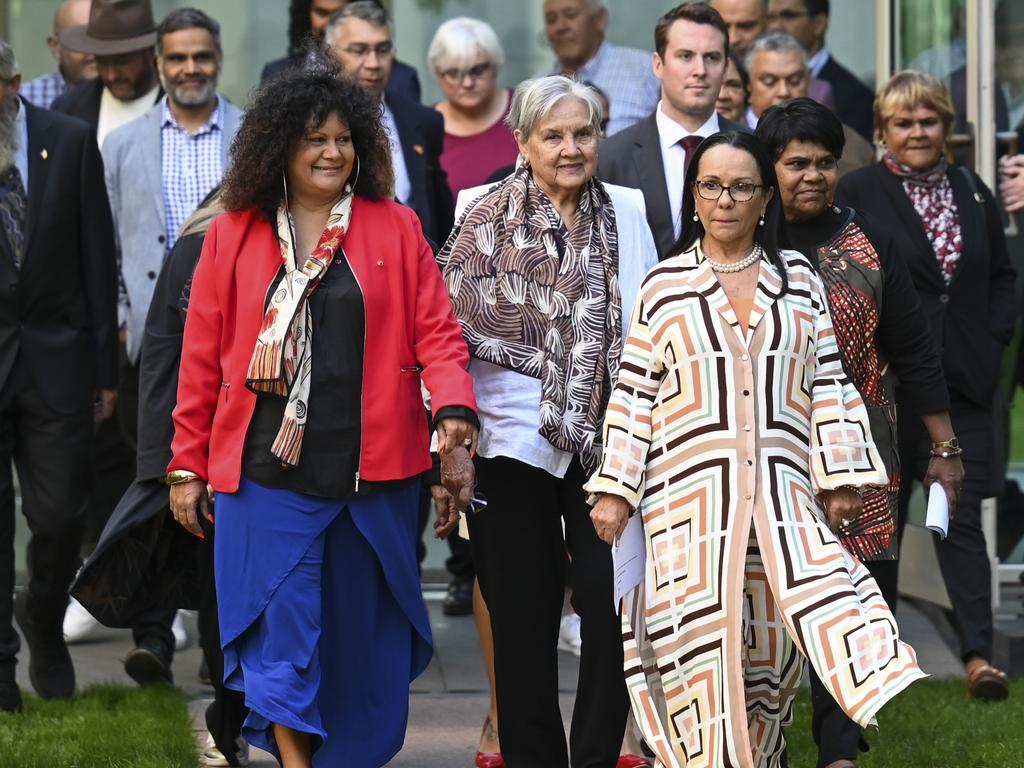
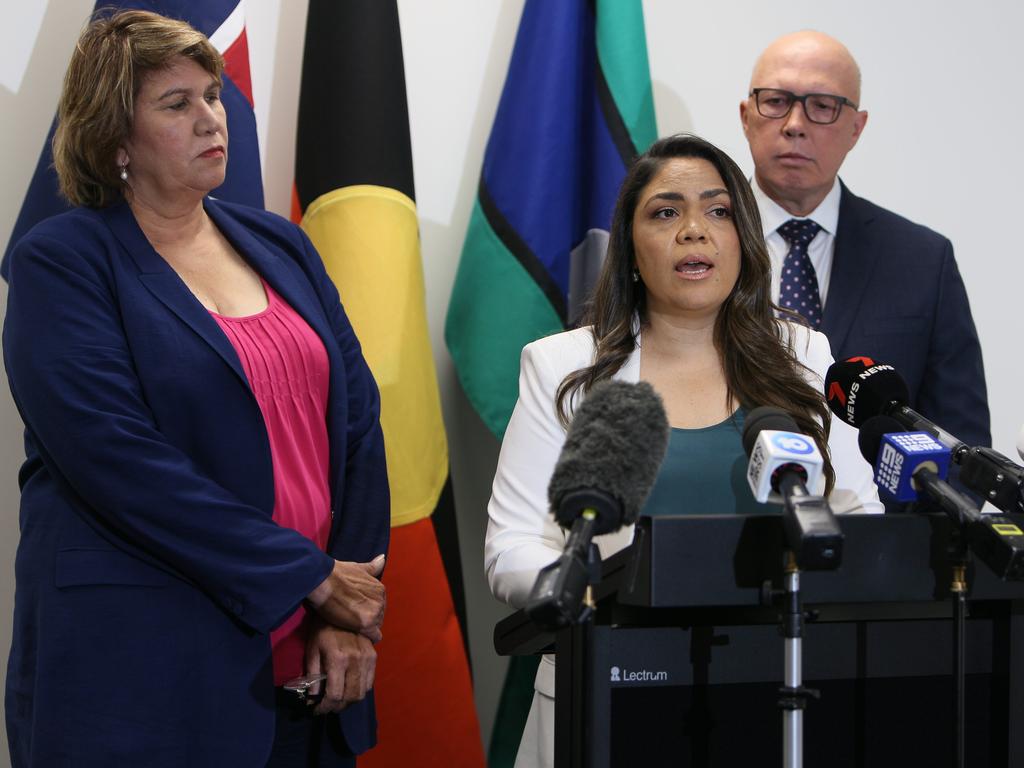




The Yes campaign for an Indigenous voice to parliament and executive government is in trouble even before final passage of the referendum legislation next week and the official announcement of a poll date – expected to be in October.